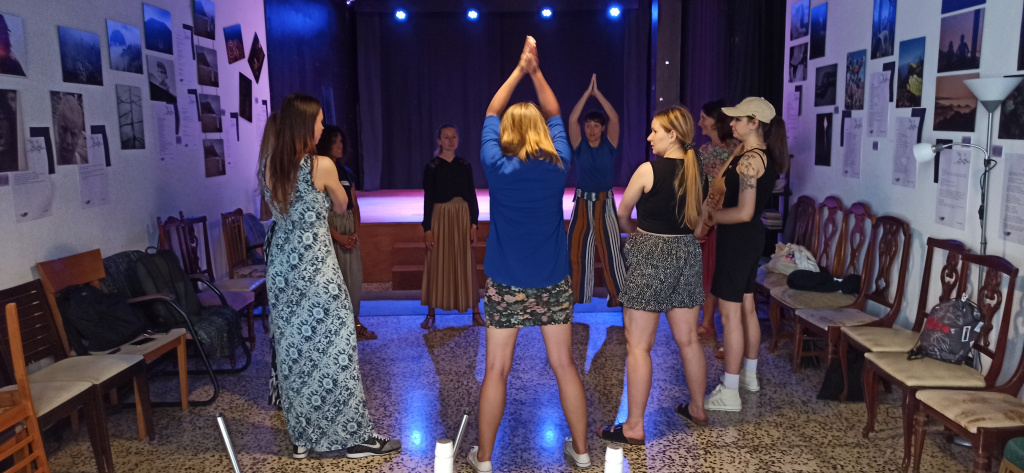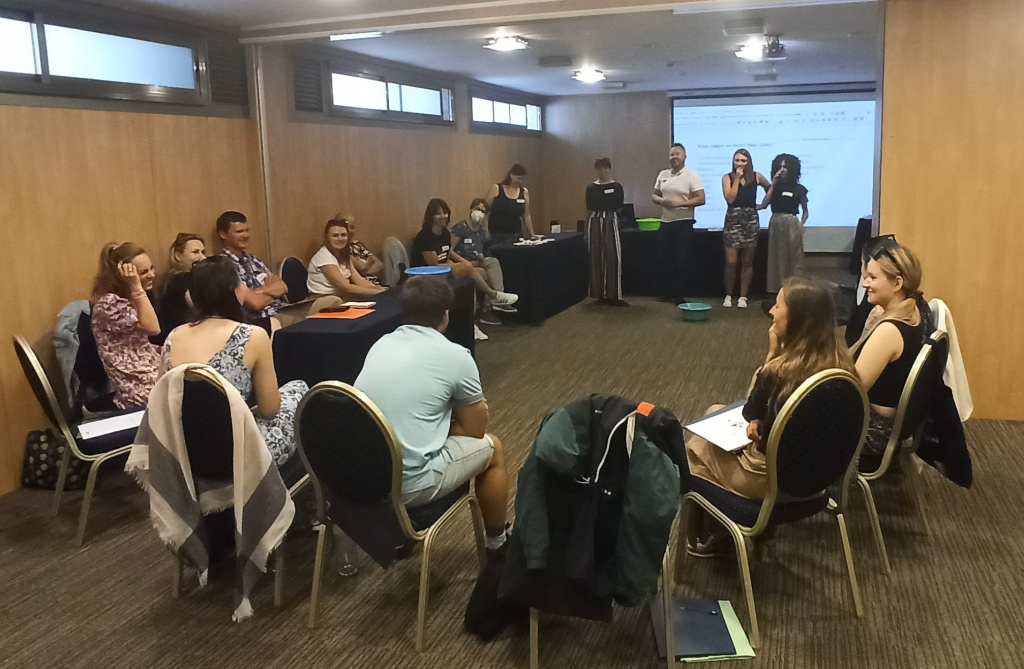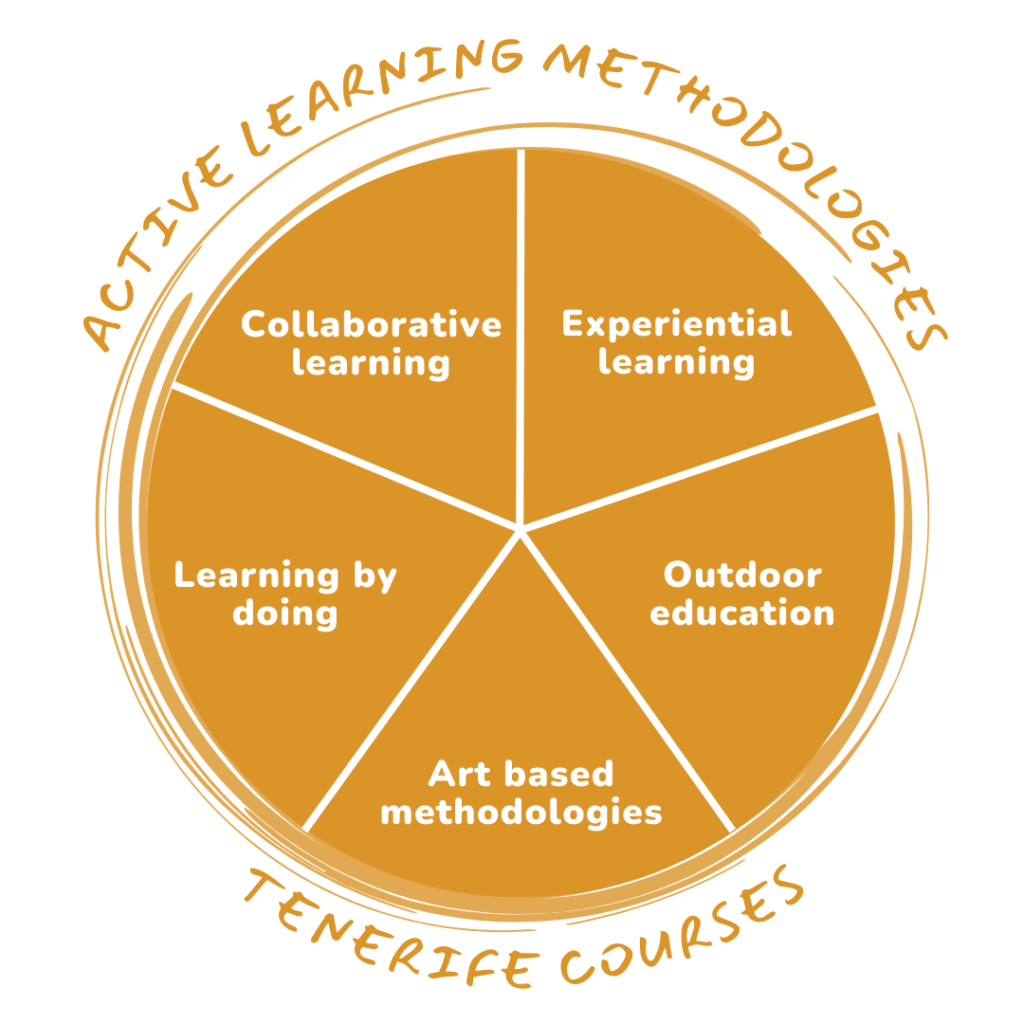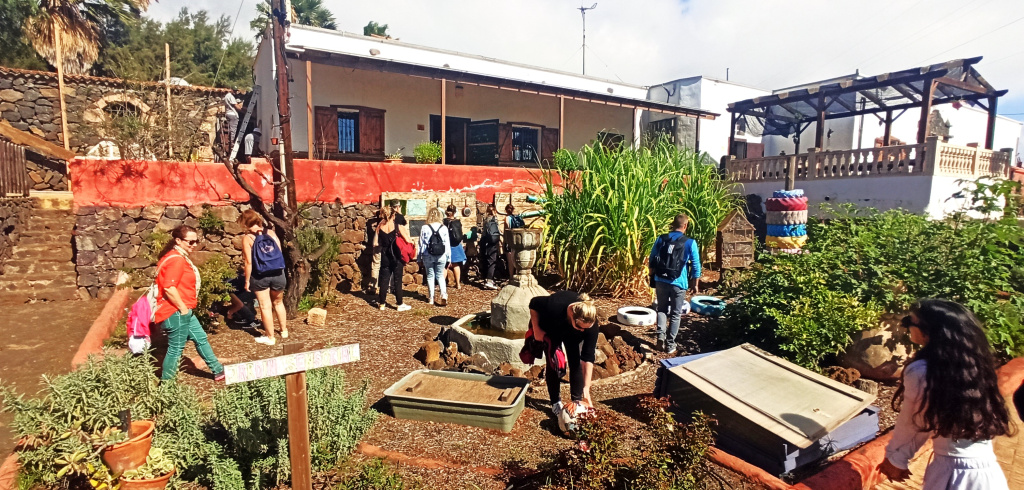Theater-based techniques to improve public speaking skills
Public speaking and presentation skills are crucial for captivating and maintaining the attention and interest of learners.
In this course, teachers, trainers, education staff, speakers, actors and other professionals can learn theater-inspired basic tools to exercise and optimize their voice, intonation and body language. Through a hands-on approach, the participants will practice and master public speaking techniques such as breathing, linguistic articulation, vocalizing etc. Through role-playing and simulations, the participants will improve their phonetic competences, scenic presence and narrative abilities. The end results of this public speaking training is to learn how to make the audience not only to listen passively, but feel surrounded, wrapped by the voice of the speaker.
Furthermore, in this course you will learn simple and easy techniques that you can afterwards not only apply in class but also teach to your learners.



Methodology:
Our focus is on showing the participants how the learners’ motivation increases when they become the actors of their own learning because the teacher takes the role of facilitator or learning guide.
Energizers, games and group reflections are foreseen daily in order to ensure a positive energy and a cooperative learning climate in the group.
We tailor our working methods based upon the participants‘ needs and professional profiles in order to ensure easier adaptability and application of the tools to the real life.
We will take care of you
-
- Support and Emergency Helpline Whatsapp group with all participants for easy communication and interaction between each other.
- Useful pdf presentation with the most important information about food, transportation and places to visit in Tenerife.
- Free afternoons to explore beauty of Tenerife.
- Visit to Teide National Park – optional.
- No requirements for accommodation, you can choose whatever you want (in the city where the course takes place).
After course:
- Teaching materials in pdf to use in your classes afterwards.
- Photos for dissemination.
- The certificate of attendance and support with all documents needed.

